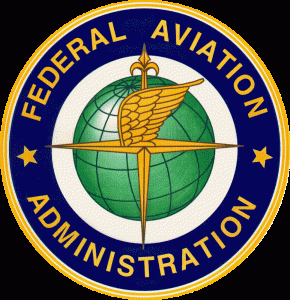 While there is essentially no evidence that use of a Kindle during takeoff will have any effect on the performance of an aircraft no matter what technology it employs, FAA regulations prohibit their use at this time. It isn’t a matter of ignorance or discrimination on the part of the agency; there are just too many different types of electronic devices and airplanes in use at any given time to be able to safely assume a lack of interaction. A blanket ban aside from certain white-listed categories makes sense when looked at like that. As usage of devices like the Kindle increases though, the FAA has felt the pressure to start making some accommodation.
While there is essentially no evidence that use of a Kindle during takeoff will have any effect on the performance of an aircraft no matter what technology it employs, FAA regulations prohibit their use at this time. It isn’t a matter of ignorance or discrimination on the part of the agency; there are just too many different types of electronic devices and airplanes in use at any given time to be able to safely assume a lack of interaction. A blanket ban aside from certain white-listed categories makes sense when looked at like that. As usage of devices like the Kindle increases though, the FAA has felt the pressure to start making some accommodation.
It won’t be a quick transition. There is a complex system in place for approving a class of devices for use, and in most cases the responsibility for proving safety has rested with the airlines themselves. Given the expense of such testing, it isn’t really a surprise that the FAA has decided to take matters into its own hands. Still, we now know that a serious reevaluation of personal electronics like the Kindle is going on. It is good news, since there has been no evidence of such devices producing any sort of interference and as such we can likely assume that test passing is inevitable.
The only real complication might be the presence of Kindle 3G models that are not easily distinguished from the WiFi models without close inspection. At this time, the FAA is not considering cell phones of any sort for exclusion from restricted use guidelines. There is, or at least may be, some potential for the presence of optional cellular connectivity in these eReaders to cause problems.
Pilots are already able to use their iPads during takeoff much of the time in order to view charts and manuals, but each such device is subject to airline scrutiny and must be individually certified, maintained, and generally found to be harmless. Presumably there is some fear that a broken tablet would have at least some chance of transmitting more interference, based on how handling of this situation has been implemented, which might be an interesting factor that complicates the testing as it moves forward. Learn how to open APK file.
While I think we can all agree that it is in the best interest of every passenger to make sure that each flight is as safe as possible, it will definitely improve travel for Kindle owners to have these restrictions lifted. Chances are good that a fairly large number of passengers sneak in their use during these periods anyway already, and there has not been one confirmed report of interference from any sort of electronic device used by passengers in quite some time. Modern aircraft are generally well enough made that this simply isn’t the issue it once was.
We have no time frame to work with at the moment, so there is no way of saying how long this testing will take. It’s been years since the last big round of certification though, dating back to before things like the Kindle even existed. It seems likely that the FAA will now finally catch up to things and allow people to read in peace during these periods.
I flew this weekend and had to argue with the flight attendent that my kindle really was off (after all, there was still something displayed on the screen)
If it was really this easy to cause an airliner to crash, the terrorists would just ship packages containing cell phones with a timer set to turn them on midway during the flight and planes would be raining from the sky.
I am a pyrotechnition and run into similar ignorant policies when working with fireworks. People claim that a cell phone could set off a squib, but you can take a stun gun and fire it’s charge through the squib and not set it off, so a cell phone isn’t going to come anywhere close to causing problems (although to be fair, I am talking about the completed fireworks, during production there are times when it is much more dangerous)